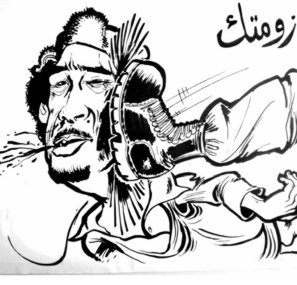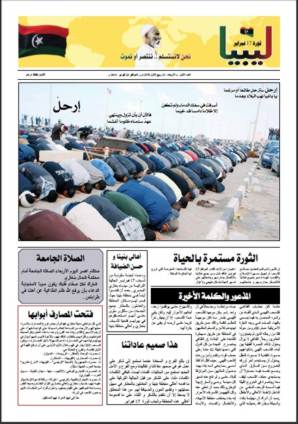|
Libya Politics | Media Free Libya's first newspaper hits the street
Indeed, the first edition of Libya's first independent newspaper already was out in Benghazi streets yesterday, news of the new media only being spread through social media Twitter today.
Of course, the new newspaper lashes out against the Ghaddafi regime. It tares apart the recent TV speech of the "paranoid" Colonel, saying Mr Ghaddafi "is still trying to raise prejudices" and "create divisions" among Libyans, but concludes divisions will disappear with Mr Ghaddafi. Benghazi resident are further urged to help providing "security for facilities and institutions," not allowing for divisions between civilians and security forces. Citizens especially should help providing security for banks, as these were taking the risk of opening to assist consumers and businesses in Benghazi. "Respect and engage positively with security forces," people are urged. Calls for unity and solidarity dominated many of the reports in Benghazi's first independent newspaper, illustrating that the revolution still has to be consolidated in eastern Libya. But the many articles about Ghaddafi, the regime's disrespect of its own people and the brutal acts by the regime surely serve to unite the Benghazi population against the common enemy; the leader of Libya for the last 42 years. There previously have existed no independent media in Libya, a country only comparable wit North Korea and Eritrea when it comes to press freedom. All Libyan media have been state-controlled, reporting Soviet-style propaganda. By staff writers © afrol News - Create an e-mail alert for Libya news - Create an e-mail alert for Politics news - Create an e-mail alert for Media news
On the Afrol News front page now
|
front page
| news
| countries
| archive
| currencies
| news alerts login
| about afrol News
| contact
| advertise
| español
©
afrol News.
Reproducing or buying afrol News' articles.
You can contact us at mail@afrol.com









